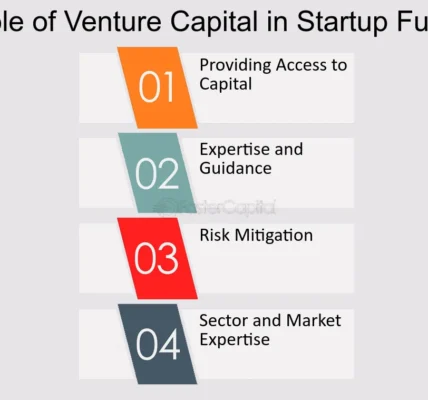In today’s fast-paced and ever-evolving business environment, success requires more than just a solid product or service; it demands a comprehensive understanding of market dynamics, strategic planning, and the ability to adapt swiftly to change. As businesses navigate this complex landscape, several key strategies can help them not only survive but thrive.
Embracing Digital Transformation
Digital transformation is no longer optional; it’s a necessity for businesses seeking to remain competitive. The integration of digital technologies into all areas of a business fundamentally changes how operations are conducted, how customers are engaged, and how value is delivered. From adopting cloud computing and data analytics to leveraging artificial intelligence and machine learning, businesses are increasingly relying on digital tools to streamline operations and enhance decision-making.
For instance, data analytics enables companies to gain deeper insights into customer behavior, predict market trends, and make informed decisions. Cloud-based solutions offer scalability and flexibility, allowing businesses to adapt quickly to changing demands. Embracing these technologies not only improves efficiency but also provides a competitive edge in a crowded marketplace.
Prioritizing Customer Experience
In today’s consumer-driven market, delivering exceptional customer experience is paramount. Businesses that prioritize understanding and meeting customer needs are more likely to build strong, lasting relationships and foster brand loyalty. This requires a customer-centric approach, where every aspect of the business—from product development to marketing and customer service—is designed with the customer in mind.
Personalization is a key component of enhancing customer experience. By utilizing data and analytics, businesses can tailor their offerings and communications to individual preferences, creating a more engaging and relevant experience. Additionally, providing excellent customer service, both online and offline, helps build trust and encourages repeat business.
Fostering Innovation and Agility
Innovation is a driving force behind business success. Companies that foster a culture of innovation are better positioned to respond to market changes, develop new products or services, and stay ahead of the competition. Encouraging creativity and experimentation within the organization can lead to groundbreaking ideas and solutions.
Agility is also crucial in today’s volatile business environment. The ability to pivot quickly in response to market shifts, technological advancements, or unexpected challenges can make the difference between success and failure. Businesses that adopt agile methodologies are more adept at managing change and can adapt their strategies as needed to seize new opportunities.
Building a Strong Brand Identity
A strong brand identity is essential for standing out in a crowded marketplace. It encompasses not just a company’s logo and visual elements but also its values, mission, and the emotional connection it creates with customers. A well-defined brand identity helps build recognition, trust, and loyalty among consumers.
Developing a compelling brand story and consistently communicating it across all channels reinforces the brand’s positioning and differentiates it from competitors. Investing in brand-building activities, such as content marketing, social media engagement, and community involvement, can further enhance brand visibility and credibility.
Implementing Effective Risk Management
Effective risk management is critical for navigating uncertainties and safeguarding business continuity. Identifying potential risks—whether financial, operational, or reputational—and developing strategies to mitigate them can help prevent or minimize adverse impacts. This involves regularly assessing risks, implementing contingency plans, and ensuring that the organization is prepared to handle unforeseen events.
Businesses should also stay informed about regulatory changes and industry trends that may affect their operations. By proactively addressing potential risks and maintaining a flexible approach, companies can better navigate challenges and capitalize on emerging opportunities.
Cultivating a Strong Company Culture
Company culture plays a significant role in attracting and retaining top talent, driving employee engagement, and fostering a positive work environment. A strong, positive culture enhances productivity, collaboration, and overall job satisfaction. It reflects the company’s values and mission and influences how employees interact with one another and with customers.
Investing in employee development, recognizing achievements, and promoting a culture of inclusivity and respect contribute to a healthy and productive workplace. A strong company culture not only improves internal dynamics but also positively impacts the company’s reputation and brand image.
Conclusion
Navigating the modern business landscape requires a multifaceted approach that embraces digital transformation, prioritizes customer experience, fosters innovation, builds a strong brand identity, implements effective risk management, and cultivates a positive company culture. By focusing on these strategies, businesses can enhance their resilience, adapt to change, and position themselves for long-term success in a competitive and rapidly evolving market.


